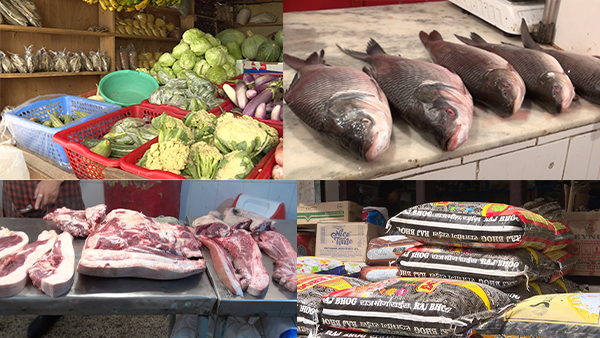 Bhutan’s expenditure on import of food items from India decreased by around Nu 700 M in 2018 as compared to 2017. The country imported food items worth Nu 5.9bn last year as compared to Nu 6.6bn in 2017. The decrease in monetary value is owing to a decrease in the amount of food items imported from India.
Bhutan’s expenditure on import of food items from India decreased by around Nu 700 M in 2018 as compared to 2017. The country imported food items worth Nu 5.9bn last year as compared to Nu 6.6bn in 2017. The decrease in monetary value is owing to a decrease in the amount of food items imported from India.
Rice, cereals and fresh vegetables are among the major food items imported from India.
Bhutan imported a little over 60,000 metric tons of rice worth Nu 1.69bn in 2018 which is 2.3 per cent less compared to 2017. In 2017 country imported 62,000 metric tons of rice worth Nu 1.68bn. The agriculture ministry says the slight increase in value despite a decrease in amount imported could be due to inflation.
Meat import in 2018 decreased by 0.8 per cent compared to 2017. Bhutan imported 6,547 metric tons of meat in last year whereas country imported 6,602 metric tons of meat in 2017.
Import of fresh vegetables and fish decreased significantly in 2018 as compared to 2017. Bhutan imported 12,390 metric tons of fresh vegetables in 2018 which is a decrease of 12.4 per cent compared to 2017. Consequently, the cost of import of fresh vegetables also decreased to Nu 257 M from 295 M in 2017.
Likewise, import of fish decreased to 1,133 metric tons in 2018 from 1,493 metric tons in 2017 and its import value reduced to Nu 163 M from 201 M in 2017. Except for salt, other food items imported from India decreased.
The agriculture ministry says the decrease is insignificant to draw any relationship to factors such as domestic food production. The ministry has looked at if the imports of other food items such as noodles and pastries have increased over the last few years as a way of explaining the slight decrease in import of rice but haven’t noted any significant variation.
The ministry says such slight variation can happen and that they cannot read into short term trends. As part of its mandate to ensure food security, the agriculture ministry started maintaining import statistics since 2017 to keep a tap on import of food items to help inform domestic food supply policies.





